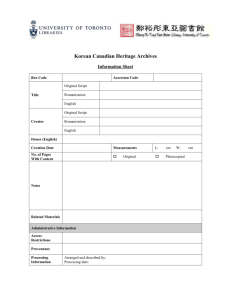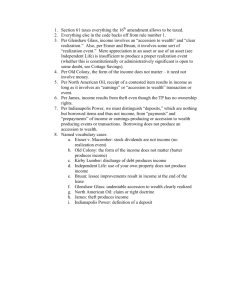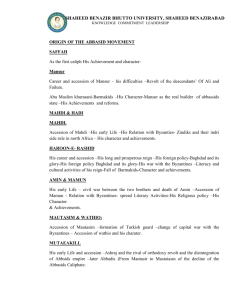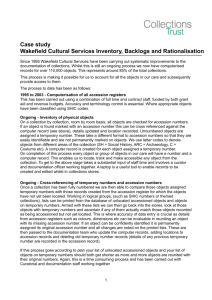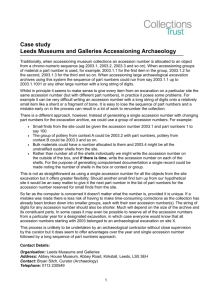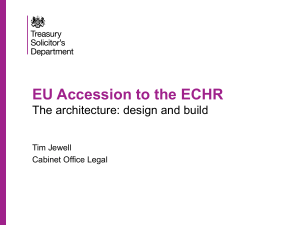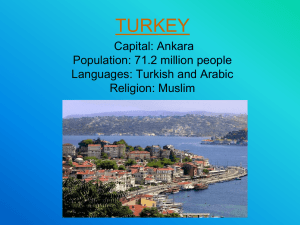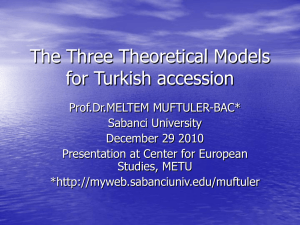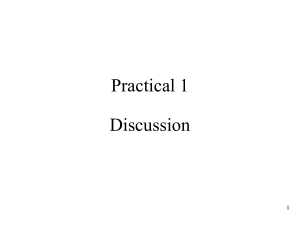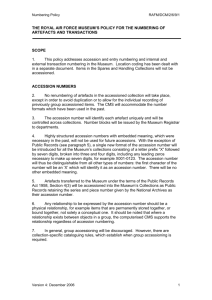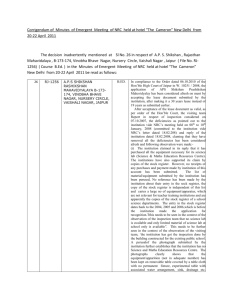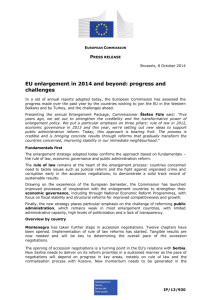Document
advertisement
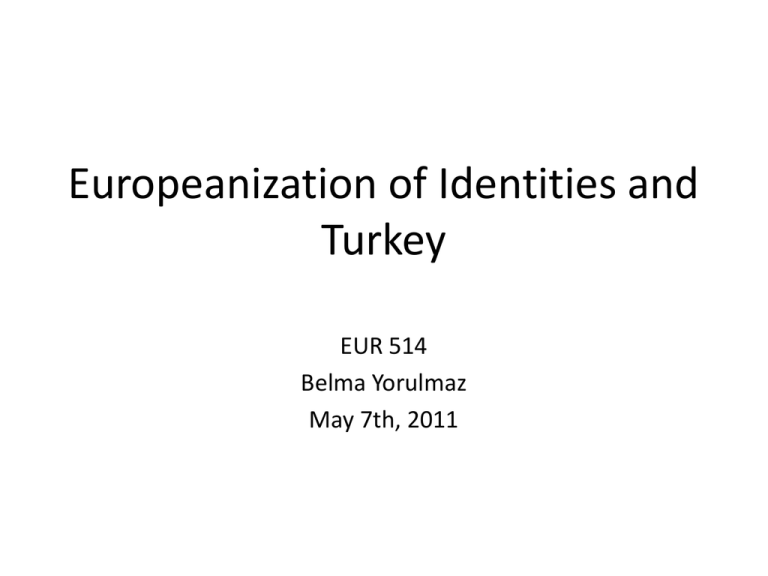
Europeanization of Identities and Turkey EUR 514 Belma Yorulmaz May 7th, 2011 Content • Turkish Foreign Policy • Turkey public opinion regarding EU accession • Public opinion of Europen countries’ regarding Turkey’s EU accession Turkey’s Membership Visited • Cronology of Accession – Roma Agreement 1953, – Costoms union agreement in 1995 – Membership application in 1995 and approval of accession process in 1999, Helsinki – 2005 accession negotiations start • Economical, democratical (ethnic nationalism, military intervantions) obstacles Factors of new direction orientation in Foreign Policy • The active role of Abdullah Gül and Ahmet Davutoğlu • Increase in nationalization of in EU policies as a result of the slowdown and blockages in accession process in EU • Deep crisis in western countries, comparatively stronger BRIC countries • Turkey’s confidence in economic performance, being one of G20 countries, no agreement signed with IMF • Globalization requires multi-dimensional relationships, Turkey started to develop that after Cold War • Trade and economic roots of foreign policy, active participation of civil society as TOBB, MUSIAD in policy making of government • AKP’s culture and identity that is basically based of Islamic root • Increase in domestic popularity of AKP as a result of the new foreign policy CHP perspective • EU as a target • Arguments regarding AKP ‘s domestic policy orientation, Islamic roots and Middle East • Membership constraints are unfair/Greece • Free movement of labor could not be materialized • Cypus case as a constraint to other articles Eurobarometer 2010 / Is EU a good thing Eurobarometer 2010 / Is EU beneficial? EU perspective in Turkey’s accession to EU • Euro Crisis & diminishing trust to Euro • Anti-ıslamists movements in EU/Merkel • Merkel concluded that they were unsuccessfully in creating a multicultural environment within Germany • Spain and Belgium presidency in 2010, different perspectives in accession process German media Debate on Turkey’s Accession
